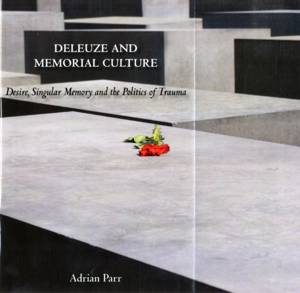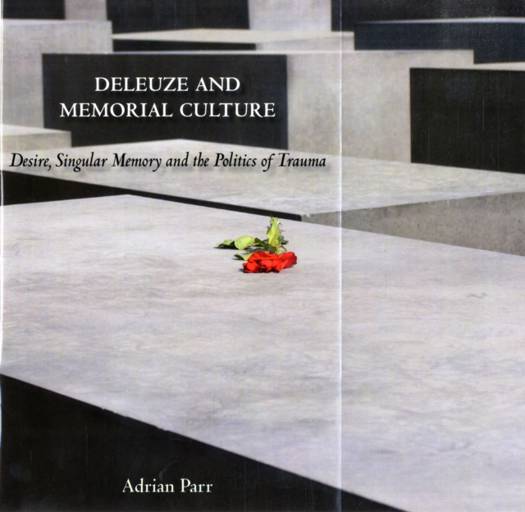
- Afhalen na 1 uur in een winkel met voorraad
- Gratis thuislevering in België vanaf € 30
- Ruim aanbod met 7 miljoen producten
- Afhalen na 1 uur in een winkel met voorraad
- Gratis thuislevering in België vanaf € 30
- Ruim aanbod met 7 miljoen producten
Zoeken
Deleuze and Memorial Culture
Desire, Singular Memory and the Politics of Trauma
Adrian Parr
Hardcover | Engels
€ 170,45
+ 340 punten
Omschrijving
Deleuze and Memorial Culture is a detailed study of contemporary forms of public remembrance. Adrian Parr considers the different character traumatic memory takes throughout the sphere of cultural production and argues that contemporary memorial culture has the power to put traumatic memory to work in a positive way. Drawing on the conceptual apparatus of Gilles Deleuze, she outlines the relevance of his thought to cultural studies and the wider phenomenon of traumatic theory and public remembrance. This approach is interdisciplinary, drawing on media criticism, psychoanalysis, cultural studies, urbanism, continental philosophy and political economy.A number of case studies are examined including the holocaust, the Vietnam Veterans Memorial in Washington DC, 9/11, the Amish shootings in Pennsylvania USA, the documentation and dissemination of US military abuses at Abu Ghraib prison, as well as the consumption and reification of trauma.This book offers a revision of trauma theory that presents trauma not simply as a definitive experience and implicitly negative, but an experience that can foster a sense of hope and optimism for the future.
Specificaties
Betrokkenen
- Auteur(s):
- Uitgeverij:
Inhoud
- Aantal bladzijden:
- 216
- Taal:
- Engels
Eigenschappen
- Productcode (EAN):
- 9780748627547
- Verschijningsdatum:
- 11/03/2008
- Uitvoering:
- Hardcover
- Formaat:
- Ongenaaid / garenloos gebonden
- Afmetingen:
- 160 mm x 236 mm
- Gewicht:
- 453 g

Alleen bij Standaard Boekhandel
+ 340 punten op je klantenkaart van Standaard Boekhandel
Beoordelingen
We publiceren alleen reviews die voldoen aan de voorwaarden voor reviews. Bekijk onze voorwaarden voor reviews.











